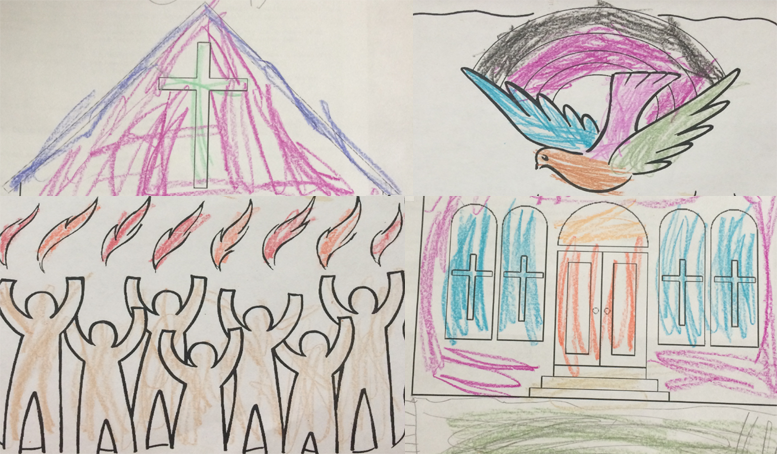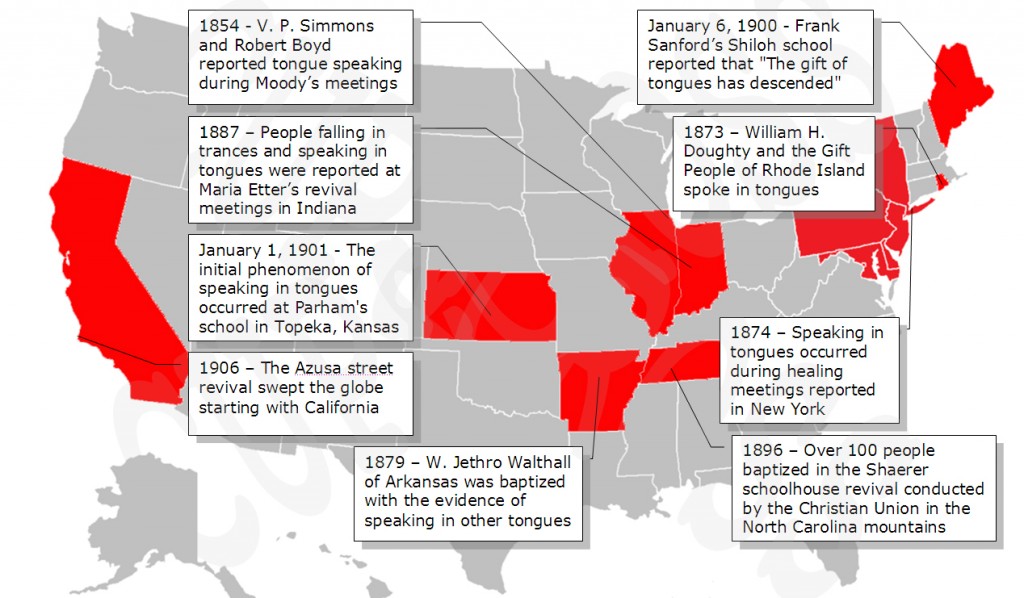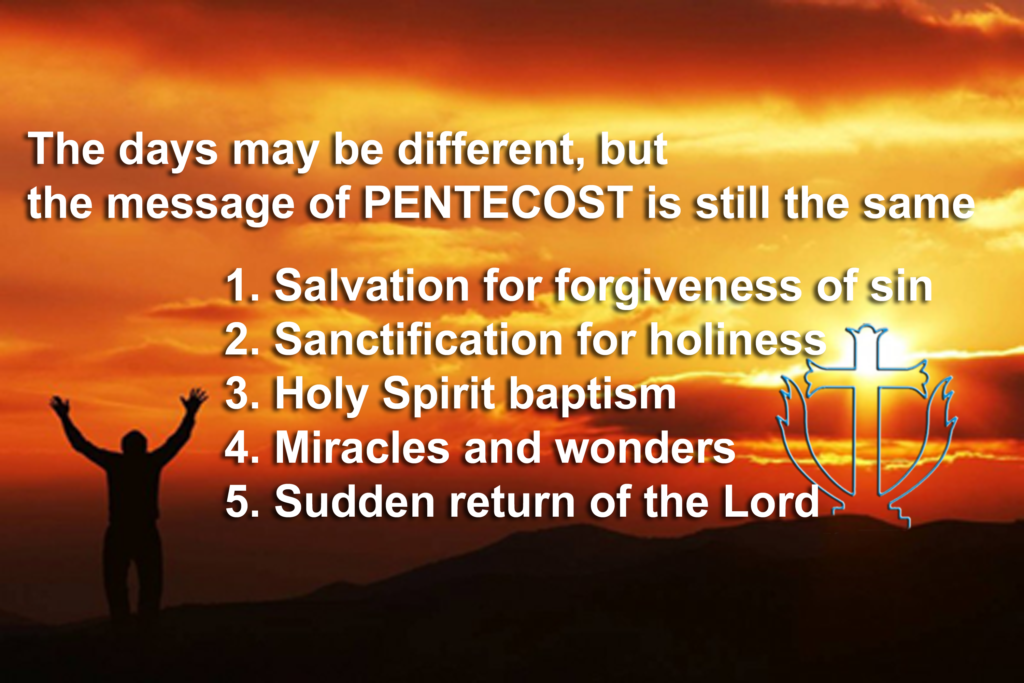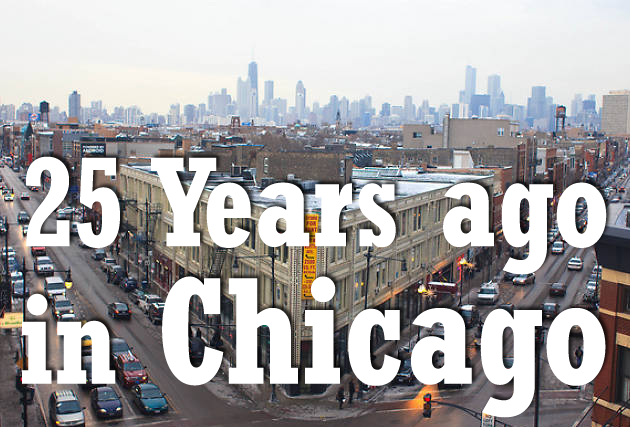Small Churches Are Popular – Half Of Churches Are Small in 2020
Small Churches Are Popular
When it comes to attendance, 46% of people attend small churches with 100 or fewer members. Typically, this is due to the fact that smaller churches are more prevalent and easy to get to. They’re also often more community oriented for those who want to build relationships with the majority of other members.
Half Of Churches Are Small
To prove how prevalent small churches are, the same study as above found that 50% of churches have 100 members or fewer. Small to medium churches make up another 40% of churches and have 100-350 members. Sometimes it’s not about having the most members, but retaining and engaging the members you do have.
Digital Discipleship at Lee University
Digital Discipleship is a practical training manual for the use of collaborative online tools, digital storytelling, creative websites, and mobile networking in the ministry of the Church. This course is intended to provide students with a hands-on toolbox for extending their present ministry to the internet world with the intent of soul-saving and discipleship. There are no pre-requisites to this course, and it is open for enrollment to current students or new applicants. This 3-credit-hour, fully online, asynchronous course will take place June 23 to Aug. 10. To register, visit applytolee.com and use the code DIGITAL (case-sensitive) to waive the $25 application fee.
Lee University 2020 Church of God Scholarship Program
Receive a Lee Online student scholarship of $1,000, disbursed over the academic year – Fall, Spring, and Summer. Continuous enrollment is required. Details are important, so here are some of the finer points of this special scholarship offer:
- The scholarship is open to new applicants starting a program in August 2020.
- The $1,000 will be applied evenly over the 2020-2021 academic year (Fall, Spring, Summer), so make sure you stay enrolled to reap the full reward.
- The award can be used towards Lee Online certificate, undergraduate or graduate programs.
- Enroll full-time (two classes per session) or part-time (one class per session).
- It can be combined with the ministry or military/first responders program tuition discounts (but not with other scholarships).
Make sure to use SPIRIT (case-sensitive) as your discount code when you applytolee.com so that we can reserve your scholarship funds.
Ensure Eligibility
Available to newly enrolled Lee Online undergraduate, graduate, or certificate students with a start date of August 18, 2020. May not be combined with any other offers or scholarships.
Register for your scholarship today here: https://leeuniversity.edu/cog/
Pentecost Sunday Full Gospel as Preached by the Early Pentecostals
I keep on repeating this through the years, but the need for the constant repetition comes from the simple fact that among new doctrinal teachings and Hillsong style of worship the True Message of Pentecost remains long forgotten
- Salvation – That a man must be saved while the hour of grace is still upon us has been that teaching of every protestant evangelical since the Reformation. Why people attend church all their lives without getting saved is beyond me. But I do know that the commitment of the CHURCH to REVIVAL brings people to SALVATION.
- Sanctification – The Wesleyan teaching of sanctification resolves that the sanctification of the believer is definite. This means that though it may progress and evolve through time, as the believer gets closer to God in his/her daily walk, sanctification must become ENTIRE i.e. allowing NO sin to abide in the believer’s body, soul or spirit. Without ENTIRE sanctification resulting in holiness, no one will ever see God (Heb. 12:14).
- Holy Ghost Baptism – The doctrine of the Baptism with the Holy Ghost means that when baptized we speak in one tongue with God because we are ONE with His Spirit. Not just in us or upon us, but that we are IN the Spirit as John was on the day of Revelation.
- Healing in the Atonement of Christ belongs to every believer. This means you, your family and your church members. The healing provided in the Atonement is for ALL believers – no exception. It is also for ALL sickness, disease, viruses, infections, tumors and cancers. But that it belongs to does not yet mean that it has been received by the believer. For this reason, God does not stop healing neither in this age nor through eternity, as the leaves of the Tree of Life in the New Jerusalem are still and forever for the healing (Rev. 22:2)
- The Second Coming of Christ for Pentecostals is not simply pre-millennial, but also pre-Tribulation. There have been MANY teachings on the End Times until today. Post-millennials claim we live in the Millennium even now anticipating the return of the Lord; a-millennials that there will be no Millennium at all. Post-tribulationists expect his return at the end of the Tribulation, mid-post-tribulationists in the middle. But in Pentecost, we expect Christ to return before the Tribulation that we may be saved from the hour of trial (Rev. 3:10) and before the Millennium so we may reign with Him 1,000 years. Any other message is no message of hope for the Church of the Living God.
Speaking in Tongues in America Prior to the Azusa Street Revival of 1906
April, 1906 – The Azusa street revival swept the globe starting with California
January 1, 1901– The initial phenomenon of speaking in tongues occurred at Parham’s school in Topeka, Kansas
January 6, 1900 – Frank Sanford’s Shiloh school reported that “The gift of tongues has descended”
1896 – Over 100 people baptized in the Shaerer schoolhouse revival conducted by the Christian Union in the North Carolina mountains
1887 – People falling in trances and speaking in tongues were reported at Maria Etter’s revival meetings in Indiana
1874 – Speaking in tongues occurred during healing meetings reported in New York
1873 – William H. Doughty and the Gift People of Rhode Island spoke in tongues
1854 – V. P. Simmons and Robert Boyd reported tongue speaking during Moody’s meetings
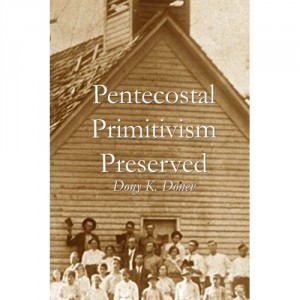
FURTHER READING:
Church of God (Cleveland, TN)
- Alive, alive! (A personal testimony)
- Church of God Primitivism
- Bulgarian Church of God
- J.W. Buckalew
- Why revival came? by Dr. Charles Conn
Azusa Street Revival of 1906
- Lucy F. Farrow: The Forgotten Apostle of Azusa
- The FORGOTTEN ROOTS OF THE AZUSA STREET REVIVAL
- Azusa Street’s Apostolic Faith Renewed
- Azusa Street Sermons
- Pentecostal Primitivism Preserved
Prior to Azusa Street Revival of 1906
- First person to speak in tongues in the Assemblies of God was William Jethro Walthall of the Holiness Baptist Churches of Southwestern Arkansas
- The Work of the Spirit in Rhode Island (1874-75)
- Speaking in Tongues in America Prior to the Azusa Street Revival
- WAR ON THE SAINTS: Revival Dawn and the Baptism of the Spirit
- How Jezebel Killed One of the Greatest Revivals Ever
The message of PENTECOST is still the same…
June 1, 2020 by Cup&Cross
Filed under Featured, News, Publication
Since the beginning of the 21st century, only 6-10% of new born believers in America receive the Baptism with the Holy Spirit, which by 2018 has resulted in:
- Over 60% within Global Pentecostalism do not speak in tongues
- A major doctrinal shift within Pentecostal Theology today claims speaking in tongues is not the only evidence of Holy Spirit Baptism
- Some theologians even claim there is no initial evidence in the Bible
- Others today go further to believe that no outward sign of the Holy Spirit baptism is necessary.
For this reason, WE are re-committing ourselves and ministry to revival and restoration of the Pentecostal Message through praying, fasting and preaching:
- Salvation of the sinner’s soul and entire sanctification through the Blood of Jesus
- Baptism with the Holy Spirit and fire with initial evidence of speaking in tongues
- Supernatural gifts and ministries of the Holy Spirit
- Healing, deliverance and signs following
- Pre-Millennial return of Christ and pre-Tribulation Rapture of His Church to glory
Please consider the URGENCY of this generation!
Let us reason together what can we do to prevent this rapid decline in Biblical spirituality.
Revival will not come without preaching!
Revival of Pentecost will not come without preaching the Message of Pentecost.
Speaking in Tongues in America Prior to the Azusa Street Revival of 1906
April, 1906 – The Azusa street revival swept the globe starting with California
January 1, 1901– The initial phenomenon of speaking in tongues occurred at Parham’s school in Topeka, Kansas
January 6, 1900 – Frank Sanford’s Shiloh school reported that “The gift of tongues has descended”
1896 – Over 100 people baptized in the Shaerer schoolhouse revival conducted by the Christian Union in the North Carolina mountains
1887 – People falling in trances and speaking in tongues were reported at Maria Etter’s revival meetings in Indiana
1874 – Speaking in tongues occurred during healing meetings reported in New York
1873 – William H. Doughty and the Gift People of Rhode Island spoke in tongues
1854 – V. P. Simmons and Robert Boyd reported tongue speaking during Moody’s meetings

FURTHER READING:
Church of God (Cleveland, TN)
- Alive, alive! (A personal testimony)
- Church of God Primitivism
- Bulgarian Church of God
- J.W. Buckalew
- Why revival came? by Dr. Charles Conn
Azusa Street Revival of 1906
- Lucy F. Farrow: The Forgotten Apostle of Azusa
- The FORGOTTEN ROOTS OF THE AZUSA STREET REVIVAL
- Azusa Street’s Apostolic Faith Renewed
- Azusa Street Sermons
- Pentecostal Primitivism Preserved
Prior to Azusa Street Revival of 1906
- First person to speak in tongues in the Assemblies of God was William Jethro Walthall of the Holiness Baptist Churches of Southwestern Arkansas
- The Work of the Spirit in Rhode Island (1874-75)
- Speaking in Tongues in America Prior to the Azusa Street Revival
- WAR ON THE SAINTS: Revival Dawn and the Baptism of the Spirit
- How Jezebel Killed One of the Greatest Revivals Ever
Back to the Basics of Pentecost: Diamonds in the Rough-N-Ready (2020)
 Since the beginning of the 21st century, only 6-10% of new born believers in America receive the Baptism with the Holy Spirit, which by 2018 has resulted in:
Since the beginning of the 21st century, only 6-10% of new born believers in America receive the Baptism with the Holy Spirit, which by 2018 has resulted in:
- Over 60% within Global Pentecostalism do not speak in tongues
- A major doctrinal shift within Pentecostal Theology today claims speaking in tongues is not the only evidence of Holy Spirit Baptism
- Some theologians even claim there is no initial evidence in the Bible
- Others today go further to believe that no outward sign of the Holy Spirit baptism is necessary.
For this reason, WE are re-committing ourselves and ministry to revival and restoration of the Pentecostal Message through praying, fasting and preaching:
- Salvation of the sinner’s soul and entire sanctification through the Blood of Jesus
- Baptism with the Holy Spirit and fire with initial evidence of speaking in tongues
- Supernatural gifts and ministries of the Holy Spirit
- Healing, deliverance and signs following
- Pre-Millennial return of Christ and pre-Tribulation Rapture of His Church to glory
Please consider the URGENCY of this generation!
Let us reason together what can we do to prevent this rapid decline in Biblical spirituality.
Revival will not come without preaching!
Revival of Pentecost will not come without preaching the Message of Pentecost.
Speaking in Tongues in America Prior to the Azusa Street Revival of 1906
April, 1906 – The Azusa street revival swept the globe starting with California
January 1, 1901– The initial phenomenon of speaking in tongues occurred at Parham’s school in Topeka, Kansas
January 6, 1900 – Frank Sanford’s Shiloh school reported that “The gift of tongues has descended”
1896 – Over 100 people baptized in the Shaerer schoolhouse revival conducted by the Christian Union in the North Carolina mountains
1887 – People falling in trances and speaking in tongues were reported at Maria Etter’s revival meetings in Indiana
1874 – Speaking in tongues occurred during healing meetings reported in New York
1873 – William H. Doughty and the Gift People of Rhode Island spoke in tongues
1854 – V. P. Simmons and Robert Boyd reported tongue speaking during Moody’s meetings

FURTHER READING:
Church of God (Cleveland, TN)
- Alive, alive! (A personal testimony)
- Church of God Primitivism
- Bulgarian Church of God
- J.W. Buckalew
- Why revival came? by Dr. Charles Conn
Azusa Street Revival of 1906
- Lucy F. Farrow: The Forgotten Apostle of Azusa
- The FORGOTTEN ROOTS OF THE AZUSA STREET REVIVAL
- Azusa Street’s Apostolic Faith Renewed
- Azusa Street Sermons
- Pentecostal Primitivism Preserved
Prior to Azusa Street Revival of 1906
- First person to speak in tongues in the Assemblies of God was William Jethro Walthall of the Holiness Baptist Churches of Southwestern Arkansas
- The Work of the Spirit in Rhode Island (1874-75)
- Speaking in Tongues in America Prior to the Azusa Street Revival
- WAR ON THE SAINTS: Revival Dawn and the Baptism of the Spirit
- How Jezebel Killed One of the Greatest Revivals Ever
25 Years Ago in Chicago…
Exactly a quarter of a century ago today, I arrived in Chicago with a plan to start a Bulgarian church. That was my second trip to the Windy City after a mission’s trip with a few college friends in Christmas of 1994. The Narraganset Church of God in Chicago hosted us with great success and it was there I met several Bulgarians who desired to start a church. A key moment still remembered from 1994 was the “boot sermon.”
On Memorial Day weekend of 1995, I drove my Carolina baby blue Buick Grand National exactly 777 miles north to Chicago. It was still the time of no GPS or phone navigation so the only thing I had to go buy was an old atlas. Not knowing a better way just yet, I didn’t take the North-West Suburbs but exited on North Avenue and ended up driving its whole length through the city. On a warm Sunday the entire population of Wicker Park was in the streets. It was like in the movies. So was the rest of the Summer of 1995.
I had made little arrangements for my stay and ended up with a Bulgarian family living on Jackson Blvd. For the lack of space, I slept on an old couch on their balcony. Yes, during the Chicago heat wave of 1995.
I stayed with the pastor’s family a lot, especially when we started our 5 a.m. prayers in the church for members who would stop by to be prayed for before going to work. Some of those nights I just stayed at the church and slept on the first pew before the altar. It was there one early morning God woke me with the whole Gospel of John open before me, which later became the plan for my Bible translation.
As to the start of the Bulgarian church in Chicago, it came naturally as part of the ministry. The small band of Bulgarian believers would come for the English-speaking morning worship and then stay for a Bulgarian service in the early afternoon. A Spanish-speaking service followed at 4 P.M. as well. Several key events through the summer like the now-traditional Bulgarian 4th of July picnic in Chicago and a block party organized by the Narraganset Church of God helped spread the word of our Bulgarian ministry. Soon migrants of all ages began attending the afternoon services.
The most I remember from those services was prayer. Yes, I preached and there were guest speakers as well, but we mostly prayed. Bulgarians of all ages would come to the alter with their life pain and needs. Deep hurt within immigrant hearts, missing family members left behind in the old country, new struggles with work and existence in their new migrant reality and so on – all became a part of the new life of the Bulgarian church in Chicago. And those prayers were answered one by one. People did not come to attend or become members of a church plant project. They came and found answer to their prayers, direction in their lives and healing for their deep pain. Hidden from everyone else in Chicago, a river of pain flowed at those old church alters and a rain of healing, hope and peace filled the emptiness in those emigrant souls. That much I do still remember.
Through the whole summer as the Bulgarian church in Chicago began, I wrote my parents every Friday. Two regular stamps were what it took for a letter to get to Bulgaria back then. I would walk from the church on Narraganset across the street to Grand and drop the letter in a blue street U.S. mailbox. They all got to their destination. My dad had stored them all in an old shoe box after reading them, and I was able to find them all recently. They ain’t no diary, but still tell the story with details of each week of those humble beginnings. Along with the letters, there were a lot of pictures I had taken with my small 35mm. camera that looked more like a taser. The Metro, Sear’s Tower and under it where we ministered to the homeless, South Side and Cabrini Green, Rigley Field and Comiskey Park, McCormick and LSD. I only wish I had taken better notes now that I am writing this book. Times, places and faces are often mixed and sometimes lost in the timeline, but the story is far from forgotten. Now, a quarter of a century later, it is time to tell this story and tell it right… for the generations.
Regular Attendance Has Dropped in 2020
Attendance is one of the most sought after church statistics. Sadly, it’s also a number that’s dropped. Gallup’s most recent yearly summary is from 2017, but it shows a drop from 42% in 2008 to 37% in 2017 for regular attendees. You shouldn’t panic too much as this number hasn’t dropped drastically at all. In fact, in the 1950s, the number was only around 50%. Pro Church Tools also uncovered a sobering statistic – attendance in 2050 could be as much as half of what it was in 1990. That sounds horrible, but consider the move towards digital. You could easily see a rise in online attendance.
Millennials Have No Affiliation in 2020
When it comes to faith, millennials are choosing not to label themselves as one type of faith over another. Nearly 40% of Americans between 18-29 have no particular religious affiliation. That doesn’t mean they don’t believe in God, but they don’t follow a set denomination.
2020 Drive Thru Alternative COVID Friendly VBS Ideas
This year churches are having to resort to unique ways of ministry. We are doing a great job reaching our adults and being creative with virtual, online experiences for the kiddos to stay connected, but kids need routine and consistency of years pasts. Our kids will be looking forward to their annual VBS in-person experience. So let’s not let them down. Let’s put our heads together to give them the best VBS they will remember for years to come beyond cyberspace.
Here are some ideas:
- Have a one night drive thru experience where volunteers dress up as biblical characters to share the Roman’s Road to Salvation at difference stations throughout parking lot
- Have church members act out skits each night of the week and families can watch from car
- Do a drive thru at church where each night families can come and pick up VBS packets to take home and accomplish next day together
- Do a Trunk or Treat type VBS
- Perhaps do a scavenger hunt where you hide large cutouts around property that go along with a bible story
- Partner with a radio station in which families can tune and hear word and song from car
- Do a VBS in the style of a single scene live nativity
- Watch a Christian movie together at a local drive-in theater or a theater you create
- Could do some type of outdoor social distancing praise time and story or testimony
What are some ideas you have for your church? Please share so we can reach our kids with the greatest story in the world. Don’t cancel VBS this year because we are too emotionally overwhelmed or too busy. Let’s be the rock they need in this time of uncertainty. We were made for such a time as this.
Arizona State Quarter: A Decade Later
 We used the time in the San Francisco Bay Area to meet up with old friends from our youth group in Bulgaria. While having coffee at the El Cerrito Starbuck’s early Sunday morning, we reminisced about friends and stories from the past. Leaving the coffee shop, we came across an Arizona state quarter lying on the pavement. After picking it up, my friend shared how his brother just recently moved to Phoenix with his family.
We used the time in the San Francisco Bay Area to meet up with old friends from our youth group in Bulgaria. While having coffee at the El Cerrito Starbuck’s early Sunday morning, we reminisced about friends and stories from the past. Leaving the coffee shop, we came across an Arizona state quarter lying on the pavement. After picking it up, my friend shared how his brother just recently moved to Phoenix with his family.
At this time we had no intentions of going to the southern part of Arizona, as we had planned to travel straight across through New Mexico to reach Houston for our Easter service there. Yet, the Lord had other plans and we ended up having a last minute cancellation in our schedule which allowed for us to travel to Phoenix and spend time with our friends there.
This occasion was one of the most blessed of times of fellowship on our trip. We were able to establish divine connections as we prayed for a new Bulgarian Church in the Phoenix area. We were also able to work out the details of being able to broadcast live feed from Bulgarian churches in the US and abroad – a vision which we have held closely to our hearts for the past decade while being involved with the Bulgarian Christian Television and ministry on the internet. Together, we called this broadcast Divine Connections. As a result, Cup & Cross Ministries has been able to broadcast LIVE services from all around Bulgaria in the past month and our team is planning to broadcast live the 2009 annual conference of Bulgarian Evangelical Churches in North America, which will be held May 22-25 in Los Angelis, California.
2020 UPDATE:
- We’ve hosted over one million LIVE broadcast on Bibliata.TV since 2009
- The Bulgarian church in Phoenix has been operational for several years now
- We will be broadcasting the 2020 Bulgarian church conference LIVE via Zoom from Las Vegas, Nevada



